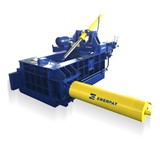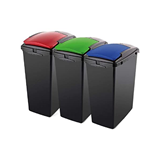The $8 billion price tag for a national container deposit scheme (CDS) unveiled would cost consumers more at the grocery check-out and is a duplication of Australia's existing world-class kerbside recycling system.
Australian Food and Grocery Council Chief Executive Gary Dawson has called on NSW Premier Mike Baird to finally reject a national CDS based on its high cost to consumers and poor economics, while citing the ongoing failure of the Northern Territory system, which has been rejected by Queensland as an unnecessary cost to consumers.
"A CDS has already been rejected by Queensland as economically unsound, while the Northern Territory scheme continues to be a wholesale failure," Dawson said. "An industry backed solution, which COAG has recommended, would deliver the same benefits at a fraction of the cost."
A CDS would force all consumers to pay up to 20 cents extra for every drink bottle, can and container they buy. They would then have to store the empty containers in their home before travelling to a handful of recycling centres to get their money back.
Dawson said the NSW Government should release the cost benefit analysis that shows the cost of a CDS has blown out from an estimated $1.4 billion to $8 billion – a 570 per cent increase that would be solely met by industry and taxpayers.
Industry alternative for recycling improvement
"In contrast, industry is proposing an alternative National Recycling Action Plan that would make it easier for Australians to recycle litter at their work, at home and in public places including parks, breaches, sporting grounds and shopping centres.
"Importantly the National Recycling Action Plan would not cost the taxpayer a cent.
"It involves the expansion of Australia's existing, and successful, yellow-top bin network from homes into Australian major public spaces, and in doing so drive up the country's overall recycling rates.
"The beverage, food and retail industries are prepared to spend $285 million over the next 10 years improving recycling and reducing litter – including the installation and roll-out of up to 166,000 recycling bins in shopping centres, parks, airports and beaches – where they are most needed.
"Australians already have some of the highest recycling rates at home. We can achieve the same recycling rates in public places with this cost effective solution.
"However, none of this can occur if an unnecessary, and duplicate, recycling system is put in place – and funded by the taxpayer.
"We call on all Premiers to be true to their commitments not to burden families with further cost of living pressures.
"Other states should follow the lead set by Queensland and instead embrace the far more efficient industry alternative that will not cost families a cent.
"We are encouraged that many Ministers are on the record as saying they would not adopt any scheme that was not cost effective nor increased the cost of living to the community. On any objective analysis – including COAG's own calculations – container deposit schemes fail these criteria," Dawson said.



